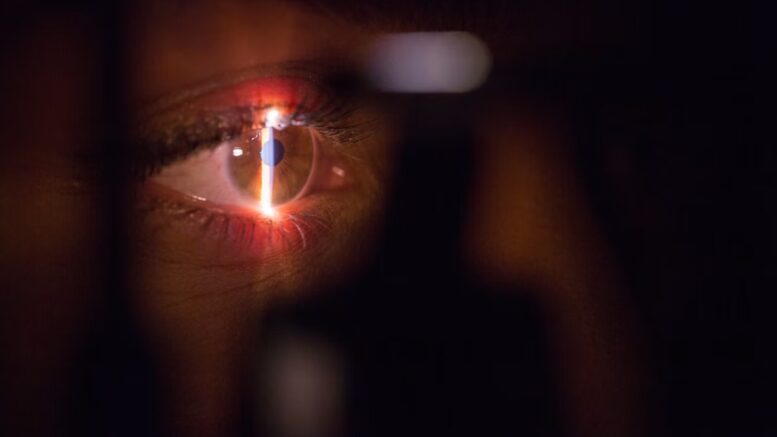Our eyes are vital for experiencing the world around us, and caring for them guarantees good vision and overall well-being. The discussion below dives into several areas of eye health, such as nutrition, lifestyle habits, eye exercises, UV protection and the importance of frequent check-ups to protect our precious sense of sight.
Nutrition for Eye Health
Even though your eyesight can be passed through your genes, your diet plays a significant role. Here are some vitamins and minerals that the eyes need and are essential to incorporate.
- Vitamin A: The most common cause of blindness worldwide is Vitamin A deficiency. It is necessary for the health of your eyes’ light-sensing cells, known as photoreceptors.
- Vitamin C: More than any other organs, your eyes require a high level of antioxidants. Vitamin C is very significant in the eye’s aqueous humour, which is the liquid that fills the outermost part of the eye. Taking the recommended intake will boost its concentration. People who take vitamin C have a lower risk of developing cataracts.
- Vitamin E: This vitamin belongs to a group of fat-soluble antioxidants that protect fatty acids from harmful oxidation. Proper vitamin E intake is essential for good eye health because your retina has a high concentration of fatty acids.
- Zinc: The level of zinc in the eyes is high and appears to be involved in creating retinal pigments. As a result, zinc deficiency may result in night blindness.
- Omega-3 Fatty Acids: They are necessary for brain and ocular development during infancy. Omega-3 fatty acids, long-chain EPA and DHA are vital for eye health. Your retina contains a high concentration of DHA, which aids in maintaining eye function and helps people with dry eyes.
Healthy Lifestyle Habits for Eyecare
Besides having a good intake of vitamins and minerals, there are daily habits that can help to maintain or prevent any loss.
- Managing screen time: The light from our devices, such as mobile phones, laptops, and tablets, has rays named HEV (High Energy Visible Light) that can break down collagen and harm your eyes. Therefore, you want to take frequent breaks when it’s possible to reduce eye strain.
- Good Hygiene: In general, you should always take the time to wash your hands and have good eye hygiene to prevent any meibomian cyst. If you wear eye contact lenses, always take the time to wash your hands when putting on or taking off the contact lenses. If you wear glasses, make sure to keep them clean as well.
- Stay Hydrated: Drinking enough water can help the body produce enough tears to lubricate the eyes, which reduces the risk of dry eyes, puffiness and dark circles.
- Regular exercise: You can prevent or control diabetes, high blood pressure and high cholesterol. This then prevents these diseases from leading to eye or vision problems.
Eye Exercises and Relaxation Techniques
According to scientific evidence, staring at a computer screen most of the time damages vision. A few eye relaxation exercises may assist your eyes from being strained. They only take a few minutes and can be done anywhere and anytime. They help you to focus better when working on your computer.
- Palming: Make sure you’re sitting comfortably. Place your arms on a flat surface, close your eyes, and then place your palms over your eyes. It should be pitch black. Breathe deeply and deliberately in and out for one or two minutes. After that, slowly remove your hands and open your eyes again.
- Eye Socket Massage: A gentle massage can be very relaxing to the eyes. Massage the area beneath your brows in a circular motion with the tips of your thumbs, from the top of your nose to the border of your eyelid.
- Four-Direction exercise: Find a comfortable seat and maintain your head straight. Then, without turning your head, look as far as you can in all four directions for two or three seconds each: up, down, left, and right. Rep three times more.
- 20-20-20 Rule: Every 20 minutes you spend using a screen, you should try to look away at something 20 feet away from you for 20 seconds.
UV Protection for Eye Health
UV lights penetrate the eye tissues more easily than visible light and can potentially risk eye problems. Therefore, it is good to find the appropriate protection for your eyes. Wearing sunglasses and a hat are the simplest and safest ways to protect your eyes from UV rays.
When choosing sunglasses, make sure it blocks the light from coming in from around the lenses. Some glasses have lenses that have UV protection. Tips for choosing and wearing sunglasses/other protective eyewear
When choosing a hat, ensure it is broad, shades your eyes, and reduces glares.
Regular Eye Check-Ups and Early Detection
Even if you may not feel pain or discomfort if something is wrong with your eyes, an examination can discover early signs of eye diseases. Eye tests can detect conditions such as chalazion, cataracts, diabetes, etc.
It is especially important to note that many eye problems can be cured if detected early.
For example, suppose an individual is diagnosed with a Chalazion (meibomian cyst), a small cyst or lump developed because an eyelid’s oil gland is blocked. In that case, they can receive the proper Chalazion treatment.
Conclusion
Many factors contribute to good eye health. A slight change in nutrition, habits, UV protection, and eye exam scheduling can significantly enhance your eye health.
Ultimately, continue to prioritize your eye health with other aspects of wellness, building a holistic approach. It will ensure a brighter and clearer future for your eyes and overall well-being.
